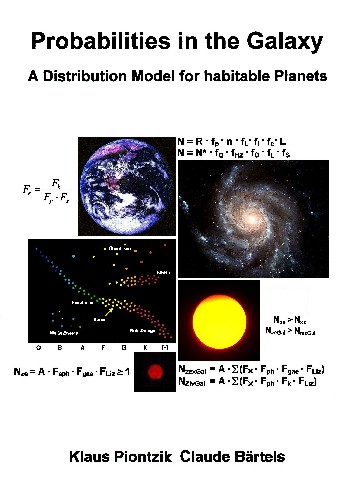|
Daughter civilizations are probably arranged radially
around the home planet. Over time, a bubble or spherical shape
is created, which can be described as the sphere of
influence or territory of a species.
100 daughter civilization in a spherical sphere of 1,300 Ly radius The thickness of the Milky Way disk is 3,000 ly. This means that civilizations with more than 100 colonies must spread out in a cylindrical shape throughout the galaxy. 1,000 daughter civilization with 3,900 Ly cylinder radius 2,500 daughter civilization with 6,500 Ly cylinder radius If you distribute the 10 ancient civilizations evenly throughout the galaxy, the average distance is about 13,590 light years. If all ancient cultures had succeeded in establishing 3,000 colonies or more, their spheres of influence would have to touch or overlap. A consequence of this galactic civilizational situation is that something like a galactic order must exist in which every species at least recognizes or accepts the space of another species. |

|
176 sides, of them 64 in Color 76 pictures 11 tables Production and publishing: Books on Demand GmbH, Norderstedt ISBN 9-783-7528-5524-1 Price: 22 Euro |
|